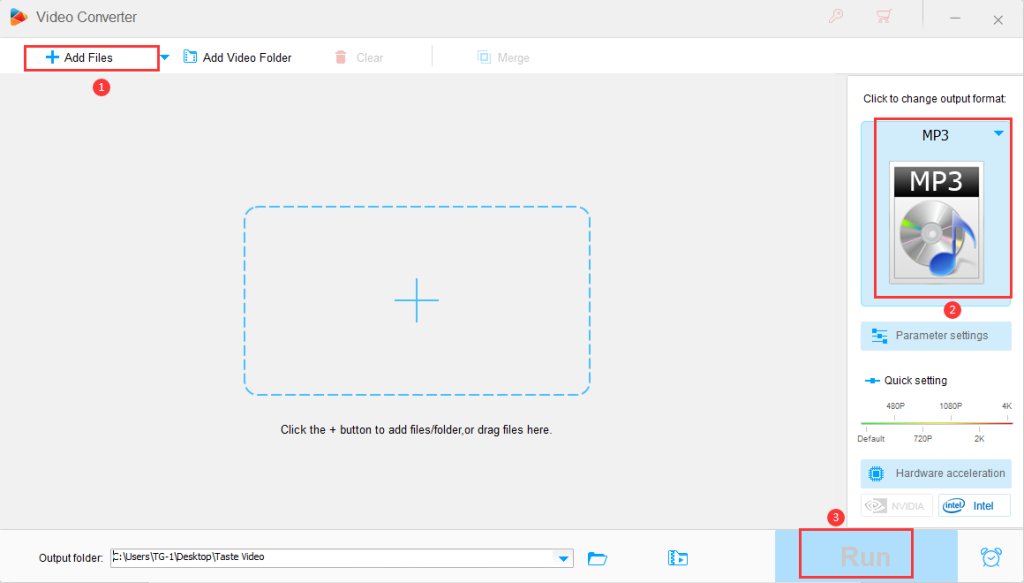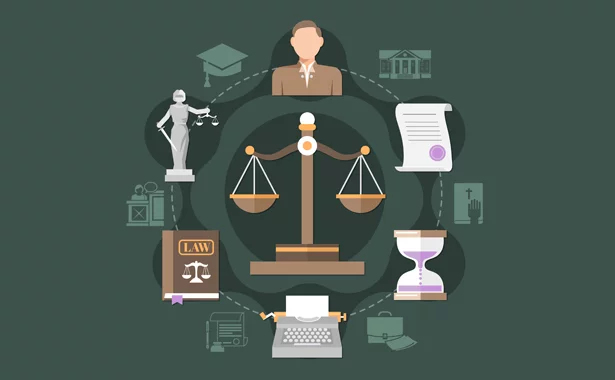Technology
How Artificial Intelligence is Transforming Healthcare: Key Trends and Insights

Introduction
Artificial Intelligence (AI) is revolutionizing numerous industries, and healthcare is no exception. The integration of AI into healthcare is bringing about transformative changes, enhancing patient outcomes, and optimizing operational efficiency. From diagnostics to personalized treatment plans, AI is proving to be a game-changer in modern medicine.
AI in Diagnostics
One of the most significant impacts of AI in healthcare is in the field of diagnostics. AI algorithms can analyze medical images with remarkable accuracy, often surpassing human capabilities. For instance, AI systems can detect abnormalities in X-rays, MRIs, and CT scans, aiding radiologists in diagnosing conditions such as cancer, fractures, and neurological disorders. These advancements not only improve diagnostic accuracy but also speed up the process, enabling timely intervention.
Personalized Treatment Plans
AI is also playing a crucial role in developing personalized treatment plans. By analyzing vast amounts of patient data, including genetic information, medical history, and lifestyle factors, AI can help doctors create tailored treatment plans that are more effective for individual patients. This approach, known as precision medicine, is particularly beneficial in treating complex diseases like cancer, where traditional treatment methods may not be effective for all patients.
Enhancing Patient Care
AI-powered chatbots and virtual assistants are transforming patient care by providing instant access to medical information and advice. These tools can answer common health-related questions, schedule appointments, and even monitor patients’ conditions remotely. For example, AI-driven apps can track vital signs and alert healthcare providers if any abnormalities are detected, ensuring timely medical intervention.
Streamlining Administrative Tasks
AI is also streamlining administrative tasks in healthcare. Automated systems can handle routine tasks such as appointment scheduling, billing, and patient record management. This not only reduces the workload on healthcare staff but also minimizes errors and improves overall efficiency. By freeing up time for healthcare professionals, AI allows them to focus more on patient care.
The Future of AI in Healthcare
The potential of AI in healthcare is vast and continues to expand. Researchers are exploring innovative applications, such as AI-driven drug discovery, which could significantly speed up the development of new medications. Additionally, AI is being used to predict disease outbreaks and monitor public health trends, contributing to better preparedness and response to health crises.
Learning Opportunities
For those interested in exploring the field of AI in healthcare, there are numerous free certificate courses available online. These courses provide a comprehensive understanding of how AI technologies are applied in healthcare settings and offer practical skills for implementing AI solutions. By enrolling in these online courses, healthcare professionals and enthusiasts can stay abreast of the latest trends and advancements in AI.
Conclusion
AI is undoubtedly transforming healthcare, bringing about significant improvements in diagnostics, personalized treatment, patient care, and administrative efficiency. As AI technologies continue to evolve, their impact on healthcare will only grow, offering new possibilities for enhancing patient outcomes and revolutionizing the industry. For those looking to delve deeper into this exciting field, free certificate courses and online courses provide an excellent starting point to gain valuable knowledge and skills.
Technology
Die Zukunft der gastronomischen Innovation: N2O-Produkte und ihre Rolle in modernen Küchen

In der heutigen Zeit sind technologische Innovationen aus keinem Bereich mehr wegzudenken, sei es in der Industrie, im Gesundheitswesen oder sogar in der Gastronomie. Ein besonderer Bereich, der in den letzten Jahren zunehmend an Bedeutung gewonnen hat, ist der Einsatz von N2O-Produkten in professionellen Küchen. Diese Produkte, insbesondere Sahnechargen, haben die Art und Weise revolutioniert, wie Köche und Konditoren ihre Rezepte zubereiten und verfeinern. In diesem Artikel werfen wir einen Blick auf die Bedeutung von N2O-Produkten, insbesondere Sahnechargen, und ihre Anwendungsmöglichkeiten in modernen Küchen.
Die Rolle von N2O-Produkten in der Gastronomie
N2O-Produkte sind in der modernen Küche von unschätzbarem Wert. Sie werden hauptsächlich für das Aufschlagen von Sahne, die Herstellung von Schaum und sogar für die Kreation von luftigen Desserts und Cocktails verwendet. Die Verwendung von Stickstoffoxid (N2O) ermöglicht es, Texturen zu verändern und das Geschmackserlebnis zu intensivieren. Sahnechargen, die mit diesem Gas betrieben werden, haben die Zubereitung von Desserts revolutioniert, da sie eine schnelle und gleichmäßige Konsistenz bieten, die mit manuellen Methoden nicht erreicht werden kann.
Ein weiterer wichtiger Vorteil von N2O-Produkten ist ihre Vielseitigkeit. Sie können nicht nur in der Gastronomie, sondern auch in der Molekularküche verwendet werden, um kreative und avantgardistische Rezepte zu entwickeln. Dies hat nicht nur die Effizienz in Küchen verbessert, sondern auch den kulinarischen Horizont erweitert.
Technologische Innovationen im Bereich Sahnechargen
Die Entwicklung von Sahnechargen hat sich erheblich verbessert, was auf fortschrittliche Technologien zurückzuführen ist, die in die Herstellung dieser Produkte eingeflossen sind. Hersteller wie Exotic Whip bieten Sahnechargen in verschiedenen Größen und Geschmacksrichtungen an, die den Anforderungen von Spitzenköchen gerecht werden. Die Produkte von Exotic Whip zeichnen sich durch ihre hohe Qualität und Zuverlässigkeit aus und entsprechen europäischen Standards, was sie zu einer bevorzugten Wahl in professionellen Küchen macht. Exotic Whip – https://exotic-whip.com/de/ ist bekannt für seine hochwertigen Produkte, die nicht nur in Restaurants, sondern auch in der Gastronomie- und Cocktailbranche weltweit geschätzt werden.
Diese technologischen Fortschritte gewährleisten nicht nur eine gleichmäßige und effiziente Nutzung von N2O, sondern verbessern auch die Handhabung der Geräte, die für die Zubereitung dieser leckeren Kreationen erforderlich sind. Die Verwendung eines N2O-Druckreglers und eines Sahnesiphons ermöglicht es, präzise und kontrollierte Ergebnisse zu erzielen, was für die Kreation von hochwertigen Gerichten und Getränken unerlässlich ist.
Vorteile der Verwendung von N2O-Produkten
Die Verwendung von N2O-Produkten, insbesondere Sahnechargen, bietet zahlreiche Vorteile:
- Schnelligkeit und Effizienz: Mit N2O-Produkten können Köche und Konditoren in kürzester Zeit die perfekte Textur und Konsistenz für ihre Kreationen erreichen.
- Vielseitigkeit: N2O-Produkte können für verschiedene Anwendungen wie das Aufschlagen von Sahne, die Herstellung von Schaum oder die Kreation von kreativen Desserts genutzt werden.
- Konsistenz: Dank der gleichmäßigen Wirkung von N2O erreichen Nutzer stets die gleiche hohe Qualität bei ihren Ergebnissen, ohne die Schwankungen, die bei manuellen Methoden auftreten können.
- Sicherheit und Einfachheit: Moderne N2O-Produkte sind einfach zu bedienen und sicher, da sie in der Regel über Druckregler und andere Sicherheitsvorkehrungen verfügen, die eine sichere Handhabung gewährleisten.
Die Zukunft der Gastronomie: N2O-Produkte als Schlüsseltechnologie
Die Technologie hinter N2O-Produkten entwickelt sich kontinuierlich weiter. Mit der zunehmenden Nachfrage nach innovativen gastronomischen Lösungen und der kontinuierlichen Verbesserung der Logistik für die Lieferung von N2O-Produkten sehen wir eine aufregende Zukunft für diese Technologie. Unternehmen wie Exotic Whip bieten nicht nur hochmoderne Produkte, sondern auch eine starke Logistik, die eine erfolgreiche Verteilung in ganz Europa sicherstellt.
Darüber hinaus sind N2O-Produkte nicht nur auf den Einsatz in der Küche beschränkt. Sie haben auch ihren Platz in der Getränkeindustrie gefunden, insbesondere bei der Herstellung von innovativen Cocktails, die ein besonderes Erlebnis für die Gäste bieten. Die Kombination von N2O mit modernen Geräten wie elektrischen Sahnesiphons und Druckreglern sorgt für ein herausragendes Benutzererlebnis.
Anwendungsmöglichkeiten von N2O-Produkten in der modernen Küche
Die Vielfalt der Einsatzmöglichkeiten von N2O-Produkten geht weit über die klassische Anwendung in der Sahneherstellung hinaus. Hier sind einige innovative Anwendungen:
- Molekularküche: Durch den Einsatz von N2O-Produkten können Köche in der Molekularküche außergewöhnliche Texturen und Geschmackserlebnisse schaffen.
- Cocktailkreationen: N2O wird in der Cocktailindustrie zunehmend verwendet, um kreative Schaum- und Spritztechniken zu ermöglichen.
- Desserts: N2O-Produkte haben die Herstellung von luftigen, leichtem Mousse und souffléartigen Desserts revolutioniert.
Die ständige Weiterentwicklung von N2O-Technologie und die zunehmende Verfügbarkeit von spezialisierten Geräten haben die kulinarische Landschaft nachhaltig verändert. Die Zukunft der Gastronomie wird zweifellos von weiteren innovativen Anwendungen dieser Technologie geprägt sein.
Indem die Gastronomiebranche N2O-Produkte in ihren kreativen Prozess integriert, wird sie nicht nur die Qualität der Gerichte verbessern, sondern auch den gesamten Erlebnisfaktor für die Gäste steigern. N2O-Produkte sind daher ein unverzichtbares Werkzeug für jede moderne Küche, die Wert auf Innovation, Qualität und Effizienz legt.
Dieser Artikel zeigt, wie moderne Technologien, insbesondere im Bereich der Gastronomie, neue kreative Möglichkeiten eröffnen. Mit der richtigen Ausrüstung, wie den hochwertigen Produkten von Exotic Whip, können Köche und Gastronomen die Grenzen der kulinarischen Kunst weiter verschieben.
Technology
Teknologian ja Kulinaaristen Uudistusten Yhteys

Nykypäivän nopeassa maailmassa teknologia ja kulinaarinen taide kehittyvät nopeasti, tarjoten uusia mahdollisuuksia ja edistysaskeleita ammattilaisille ja kuluttajille. Teknologian ja kulinarististen innovaatioden yhdistyessä on tärkeää tutkia, miten keittiöalan työkalut voivat parantaa käyttäjäkokemusta ja mullistaa alan. Sukelletaanpa siis näihin jännittäviin kehityksiin ja tarkastellaan, miten ne muokkaavat globaaleja toimialoja.
Teknologian Rooli Kulinaarisessa Alassa
Teknologian integrointi keittiöön on ollut mullistavaa, sillä monet työkalut tekevät ruoanlaitosta helpompaa, tehokkaampaa ja jopa hauskempaa. Olitpa sitten ammattilaiskokki tai kotikokki, nykyaikaiset teknologiat antavat mahdollisuuden ylittää rajoja ja tutkia uusia makuja, keittotekniikoita ja jopa aterianvalmistusmenetelmiä. Yksi mielenkiintoisimmista innovaatioista on erikoistuneiden keittiövälineiden, kuten kermasuihkutinten, yleistyminen.
Kermasuihkutimet, erityisesti sellaiset tuotemerkit kuten FastGas – https://fast-gas.com/fi/, mullistavat tavan, jolla ruoanlaittoa lähestytään kotikeittiöissä ja ammattilaiskeittiöissä. Nämä välineet antavat kokkeille mahdollisuuden luoda vaahtoja, kermavaahtoja ja muita kulinaarisia herkkuja tarkkuudella ja nopeudella, joka olisi ollut vielä vähän aikaa sitten käsittämätöntä. Eurooppalainen valmistuslaatu tekee FastGasista luotettavan valinnan korkealaatuisille kermasuihkutinteille.
FastGas Kermasuihkutinten Voima
Kun puhutaan korkealaatuisista kermasuihkutimista, FastGas on nopeasti noussut luotettavaksi nimeksi niin kotikeittiöissä kuin ammattilaiskeittiöissäkin. Nämä suihkutimet on suunniteltu tarjoamaan tasaisia tuloksia, olipa kyseessä herkän jälkiruoan valmistaminen tai suolaisten aineiden valmistelu. Niiden edistyksellinen teknologia ja tuotevalikoima varmistavat, että kokit voivat kokeilla eri makuja ja tekstuureja, tarjoten loputtomia mahdollisuuksia innovaatioon.
FastGas erottuu myös ainutlaatuisilla makuvaihtoehdoillaan, kuten mansikka ja kookos, jotka tekevät kermavaahdosta entistäkin houkuttelevampaa. Olitpa sitten valmistamassa luovia jälkiruokia tai haluamassa onnistua seuraavassa kulinaarisessa seikkailussasi, FastGas kermasuihkutimet tarjoavat täydellisen ratkaisun.
FastGas Parantaa Käyttäjäkokemusta
FastGas-tuotteet on erityisesti suunniteltu vastaamaan sekä ammattilaisten että kotikokkien tarpeita. Yhdistämällä korkean suorituskyvyn työkalut ja helposti lähestyttävät käyttöliittymät, FastGas on tehnyt kokkaamisesta entistäkin helpompaa ja jännittävämpää. Tämä on erinomainen esimerkki siitä, kuinka teknologia parantaa käyttäjäkokemuksia jopa perinteisesti vähemmän teknologisessa kentässä, kuten ruoanlaitossa.
Ne, jotka haluavat herättää kulinaariset luomuksensa eloon, voivat luottaa FastGas-tuotteisiin, jotka tarjoavat innovatiivisen ja yksinkertaisen tavan kokeilla uusia tekniikoita ja makuja. Olitpa sitten käyttämässä kermasuihkutinta kotona tai vaativassa ravintolakeittiössä, voit luottaa FastGasiin johdonmukaisiin ja huippulaatuisiin tuloksiin.
FastGas-tuotteiden Avainedut:
- Laadunvarmistus: Eurooppalainen valmistus takaa korkean laadun.
- Makuvaihtoehdot: Ainutlaatuiset vaihtoehdot, kuten mansikka ja kookos, luovat luovia reseptejä.
- Monipuolisuus: Ihanteellinen niin ammattilaiskeittiöihin kuin kotikäyttöön.
- Helppokäyttöisyys: Suunniteltu suoraviivaiseksi käytettäväksi ja tasaisiin tuloksiin.
Teknologian Tulevaisuus Keittiöissä
Tulevaisuudessa keittiöiden teknologian rooli vain kasvaa. Kulinaristisen erinomaisuuden kasvavan kysynnän ja FastGas-tyyppisten työkalujen kehityksen myötä voimme odottaa yhä innovatiivisempia ratkaisuja, jotka parantavat ruoanlaittoprosesseja. Kun yhä useammat kotikokit ja ammattilaiskokit omaksuvat nämä edistysaskeleet, teknologia tulee jatkossakin ajamaan tehokkuutta, luovuutta ja tarkkuutta keittiöissä maailmanlaajuisesti.
Teknologian ja kulinaariset taiteet yhdistyvät luoden alalle uusia mahdollisuuksia. Älykkäiden laitteiden ja kehittyneiden keittiövälineiden kehittyessä nämä innovaatiot antavat kokkeille mahdollisuuden ylittää luovuuden rajat. FastGas on vain yksi esimerkki siitä, miten teknologia parantaa ruoanlaittokokemuksia.
Kulinaarinen Vallankumous
Kulinaaristen taiteiden ja teknologian yhdistyminen on luonut vallankumouksen, ja kuten FastGas osoittaa, tämä liitto vie ruoanlaittoa uusiin korkeuksiin. Kun teknologia jatkaa kehittymistään, voimme varmasti odottaa uusia välineitä ja laitteita, jotka tekevät kokkailusta entistä helpompaa ja nautittavampaa. Olitpa sitten valmistamassa yksinkertaisia aterioita tai monimutkaisempia gourmet-ruokia, teknologia ja kulinaarinen luovuus tulevat muovaamaan keittiöiden tulevaisuutta ympäri maailmaa.
Yhteenvetona voidaan todeta, että kehittyneiden työkalujen, kuten FastGas kermasuihkutinten, käyttö kotona ja ammattilaiskeittiöissä on erinomainen esimerkki siitä, kuinka teknologia voi nostaa ruoanlaittokokemukset uudelle tasolle. Kulinaarinen ala tulee jatkossakin kehittymään innovaatioiden avulla, ja on selvää, että teknologian ja ruoanlaiton välinen suhde tulee vain vahvistumaan.
Technology
Wonderfox HD Video Converter Factory Pro: Make MPEG to MP3 Conversion Easier

How many times have you wished your life would be a lot more interesting if you had compatible audio files? Many times, many songs haven’t released their audio versions, or some files are only in MPEG format, and at this time, video converters have become a much-needed software. Due to its efficiency and clarity, MP3 is one of the most loved audio file formats in the world. If you are looking for a software that can help you convert MPEG to MP3, this article about WonderFox HD Video Converter Factory Pro will help you decide whether to give it a try.
Why convert MPEG to MP3?
MPEG was originally used to store video on DVD and digital media. Whereas MP3 is an MPEG-based format, but it is only used to store audio data.
One of the main reasons people convert MPEG to MP3 is to save their favorite songs on their phones. If you are using an Android phone, playback of MPEG files is not supported.
Another reason is to save space on the device, as MP3 files are significantly smaller in size than MPEG. Also, if you have music files in MPEG format and want to burn them to CD, converting those files to MP3 will save you hours of time.

About WonderFox HD Video Converter Factory Pro
It is a professional conversion software dedicated to converting files to any audio and video formats you need. The software is suitable for Windows, with the characteristics of easy installation and quick conversion. It supports various features besides converting audio and video, such as editing video, downloading video, recording screen, creating GIF, etc.
Main features of WonderFox HD Video Converter Factory Pro
Convert video files to 500+ output formats
It can help you convert MPEG to MP3, but its features are not only that, it also allows users to convert files to various output formats, such as AVI to MP4, M4V to WMV, MKV to 3GP, etc.
Audio options also include MP3, WAV, OGG, FLAC, ALAC, DTS, etc. Since MP3 is the most commonly used format and compatible with all devices, it is the default format in audio conversion.

Lightning conversion speed
A normal converter will take a long time to convert MPEG to MP3 if the size of the file is too large. However, WonderFox HD Video Converter Factory Pro is supported by hardware acceleration technology to convert your videos at lightning speed, on average, it only takes a few seconds to convert a video. This is definitely the highlight that sets it apart from other software.
A basic video editor is embedded
Most video software only works in one dimension, i.e. only supports one format converter. WonderFox HD Video Converter Factory Pro not only allows users to convert audio and video files, but also supports them to enhance video quality, merge videos, rotate videos, cut videos, add watermarks, add special effects, etc.
Additional features of WonderFox HD Video Converter Factory Pro
Download videos form 300+ video sharing sites, Vimeo, YouTube, Hulu, Daailymotion, Liveleak, Facebook, Twitter, etc.
Convert SD video to HD video.
Add subtitles to video files.
Extract audio from videos.
Convert video files to digital devices, such as phones, laptops, desktops, tablets, handsets, etc.
Batch convert videos to save your time.
How to convert MPEG to MP3?
Step 1: Install the software on your computer and add files.
Unzip the installation file and run the software on your computer, go to “Converter” from the main interface, and click “Add Files” to convert your MPEG file.
Step 2: Select “MP3” as the output format in the “Audio” tab.
Click the “Output Format” panel, you can find the format list, select “MP3 as the output format” under the “Audio” tab.
Step 3: Start the conversion process.
Click “Run” button to convert MPEG to MP3.

Final words
If you want to convert MPEG to MP3 quickly and easily, WonderFox HD Video Converter Factory Pro will be your best choice. The software is easy to use without any loss of quality, and is friendly to novices. Try it boldly!
-

 Technology4 months ago
Technology4 months agoTeknologian ja Kulinaaristen Uudistusten Yhteys
-

 Business6 months ago
Business6 months agoA Deep Dive into Toto Sites: Unlocking New Online Experiences
-

 Business6 months ago
Business6 months agoCollection of links: a modern solution for streamlining legal information access
-

 Blog2 months ago
Blog2 months agoRS 149 Bear Jumpsuit – Adorable & Practical Babywear
-

 Technology4 months ago
Technology4 months agoDie Zukunft der gastronomischen Innovation: N2O-Produkte und ihre Rolle in modernen Küchen
-

 Technology4 months ago
Technology4 months agoWhich Are The Best Smartphone Security Apps?
-

 Blog8 months ago
Blog8 months agowallpaper:ek_xjuauh0q= preppy
-

 Technology4 months ago
Technology4 months agoWonderfox HD Video Converter Factory Pro: Make MPEG to MP3 Conversion Easier



Pingback: wallpaper:ek_xjuauh0q= preppy - Tech Module Hub